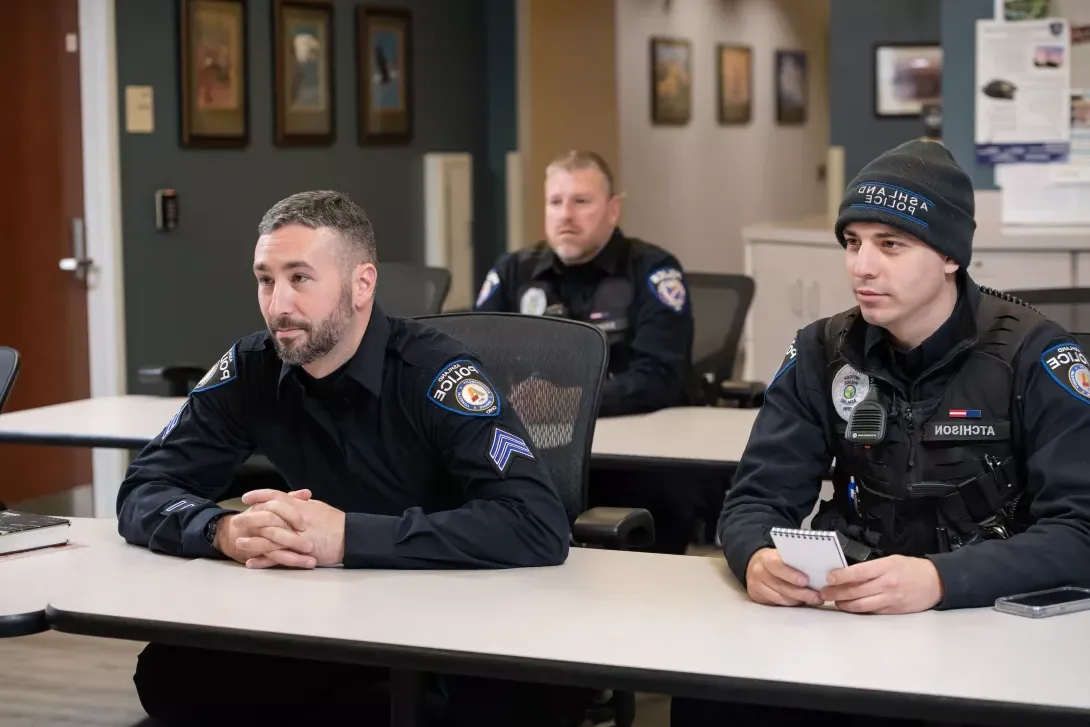Conflict Resolution Minor
The minor in Conflict Resolution provides students with the knowledge and skills necessary to effectively manage and resolve conflicts in various personal, professional, and societal contexts. Through a combination of foundational courses in criminal justice and communication, along with elective options from diverse disciplines, students gain a comprehensive understanding of conflict dynamics and learn practical strategies for mediation, negotiation, and restorative justice.
Curriculum
Students begin with introductory courses in criminal justice, including Introduction to Criminal Justice (CJ 130) and Corrections in the U.S. (CJ 227), providing a foundational understanding of the criminal justice system and its role in conflict resolution.
Next, students explore restorative justice principles and practices in CJ 465, Restorative Justice, learning alternative approaches to addressing harm and fostering healing in communities.
Students then engage in the study of conflict resolution strategies through COM 343, Conflict, Mediation, & Negotiation, which emphasizes effective communication and negotiation techniques essential for resolving disputes.
To further enhance their communication skills, students choose one course from a selection covering topics such as human communication, intercultural communication, interpersonal communication, or argumentation and advocacy.
Finally, students have the option to participate in a field experience or internship (COM 436 or CJ 403), allowing for practical application of conflict resolution concepts in real-world settings.
For more information about the curriculum, view the Academic Catalog.

Criminal Justice Minor
Dive into the dynamics of law enforcement and the legal system with our minor in Criminal Justice. This interdisciplinary program offers students a comprehensive exploration of the American criminal justice system, covering topics such as policing, corrections, criminology and introductory criminal justice. Through a blend of theoretical study and practical application, students gain valuable insights into the complexities of law enforcement and criminal behavior.
Curriculum
The minor in Criminal Justice consists of core courses such as Introduction to Criminal Justice, Corrections in the United States, Criminology and Policing in the United States, providing students with a foundational understanding of key components of the criminal justice system. Additionally, students have the opportunity to select elective courses in criminal justice, allowing them to tailor their studies to specific areas of interest within the field. With a total of 18 credit hours, this curriculum prepares students for various roles within law enforcement, corrections, and related fields, equipping them with essential knowledge and skills for navigating the complexities of the criminal justice system.
For more information about the curriculum, view the Academic Catalog.

Emergency Management and Homeland Security Minor
The minor in Emergency Management and Homeland Security provides students with a comprehensive understanding of the principles and practices essential for safeguarding the nation's security in an ever-evolving global landscape. Core courses such as Introduction to Homeland Security and Policing in an Era of Homeland Security offer foundational knowledge, while elective options allow for specialization in key areas such as border and transportation security or infrastructure and environmental security. Whether pursued on-campus or online, this minor equips students with the skills and expertise needed to contribute to national security efforts effectively.
Curriculum
Core courses include HSEC/CJ 180 Intro to Homeland Security and HSEC 200 Policing in an Era of Homeland Security, providing students with foundational knowledge and practical insights into the field of homeland security.
Elective options in Homeland Security allow students to explore specialized topics such as border and transportation security or infrastructure and environmental security, deepening their understanding of critical issues in the field.
With a total of 18 credit hours required for completion, this minor prepares students to address complex security challenges and contribute to national security efforts across various sectors. Whether pursued on-campus or online, students gain valuable skills and expertise to excel in roles related to homeland security and emergency management.
For more information about the curriculum, view the Academic Catalog.

Sociology Minor
The minor in Sociology offers students an opportunity to explore the complexities of human behavior, social structures and cultural dynamics, providing insights into contemporary social issues and their impact on individuals and communities. Whether pursued on-campus or online, this minor equips students with analytical skills and sociological perspectives essential for understanding and addressing diverse social challenges.
Curriculum
Core courses cover foundational principles, contemporary social problems and race and minority relations. Elective options allow for deeper exploration of topics such as gender, globalization and urban sociology. With a total of 18 credit hours, this minor provides valuable insights into diverse social phenomena, preparing students for critical engagement in their personal and professional lives.
For more information about the curriculum, view the Academic Catalog.
